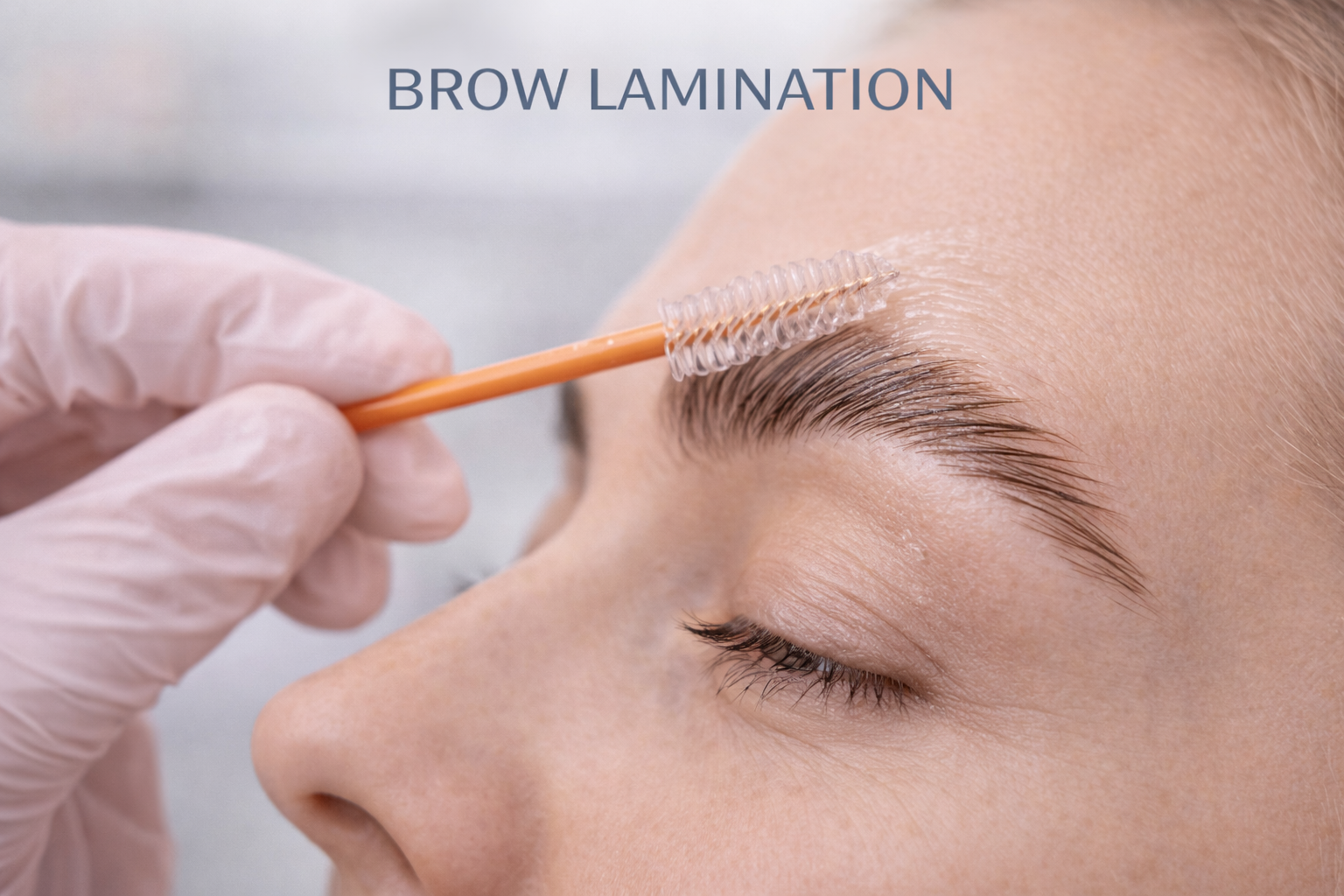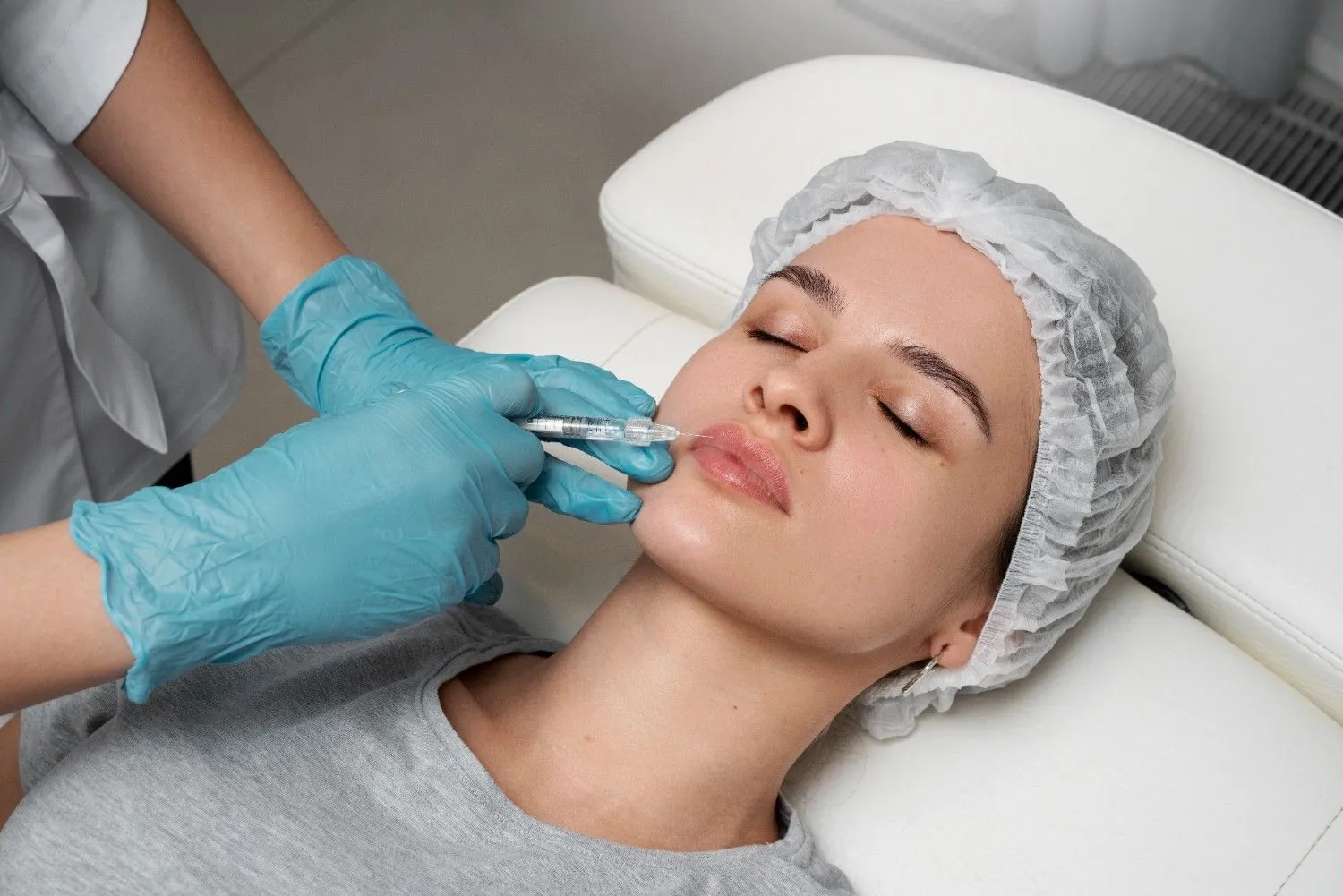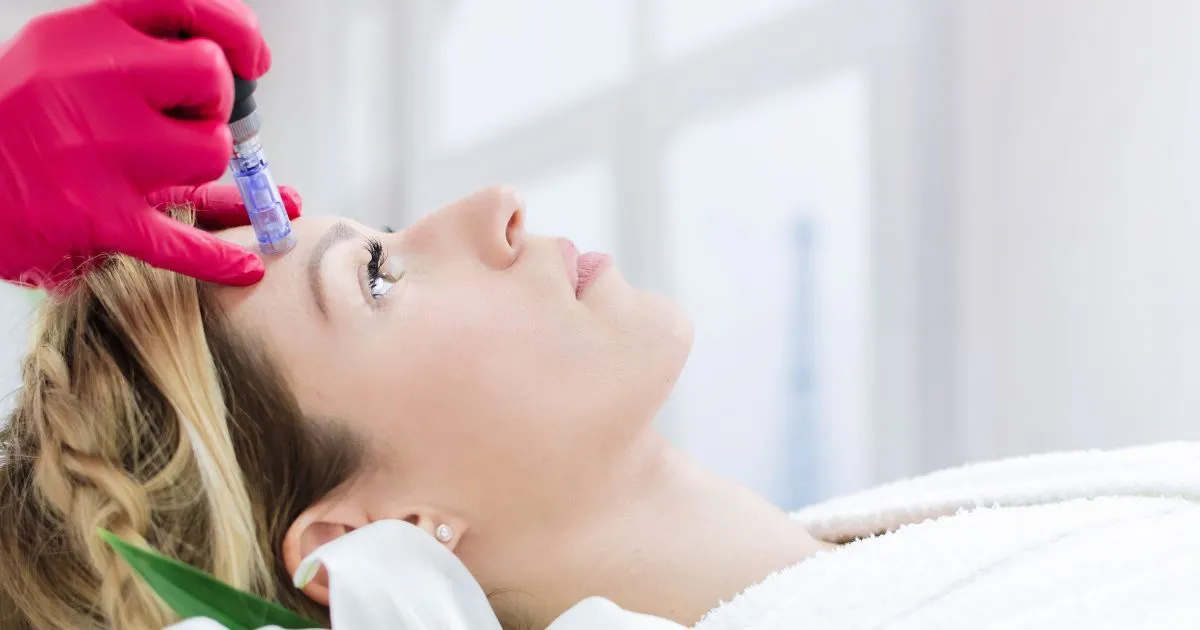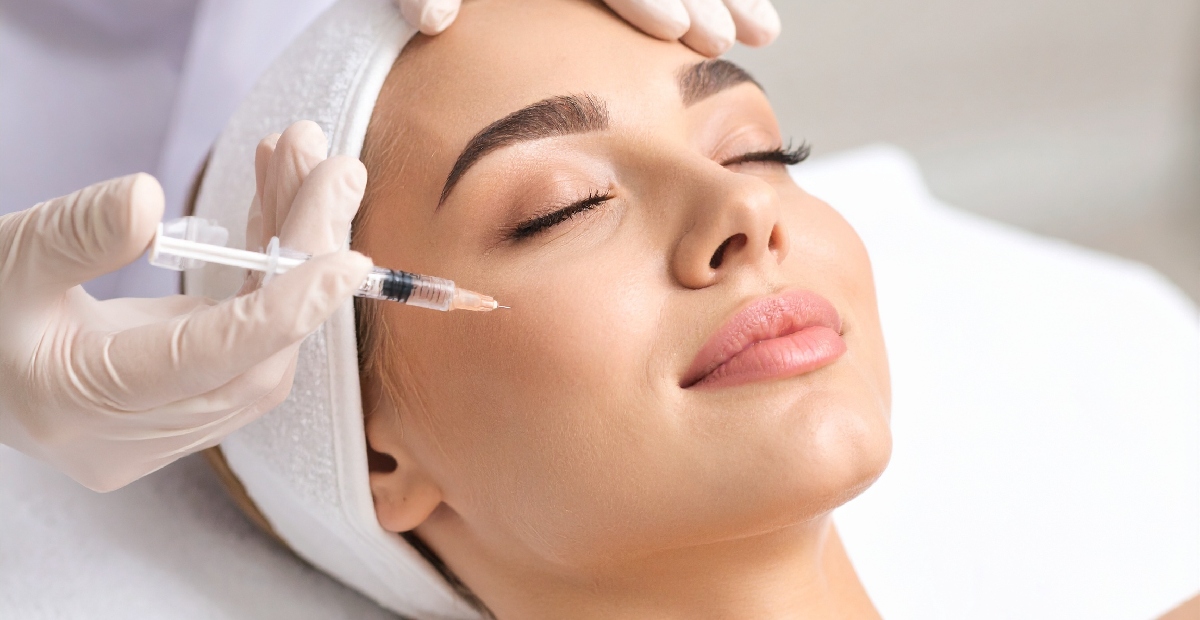What are facials?
Facials are a popular skincare treatment that involves a series of steps to enhance overall health and the appearance of the skin on the face. They are typically performed by licensed estheticians or skincare professionals in spas, salons, or dermatology clinics. Facials can address various skin concerns and are often customized to the individual’s needs and skin type.
The typical components of a facial may include:
- Cleansing: The esthetician cleans the face to remove makeup, dirt, and impurities from the skin’s surface.
- Steam: Some facials include using steam to open up pores and soften the skin, making it easier to extract black and whiteheads.
- Exfoliation: This step involves the removal of dead skin cells and the skin’s outer layer through methods like chemical peels, microdermabrasion, or gentle exfoliating scrubs. Exfoliation helps to improve skin texture and promote cell turnover.
- Extraction: If necessary, the esthetician may perform manual extractions to remove blackheads, whiteheads, and other comedones; this step should be done carefully to prevent skin damage.
- Massage: A facial massage helps to improve blood circulation, relax facial muscles, and enhance lymphatic drainage. It can contribute to a sense of relaxation and improved skin tone.
- Serums and Moisturizers: After removing the mask, serums and moisturizers are applied to nourish and hydrate the skin. These products are chosen based on the person’s skin type and concerns.
- Sun Protection: Many facials conclude with applying a broad-spectrum sunscreen for skin protection from harmful UV rays.
- Masking: Different types of masks are applied to the skin based on the individual’s skin concerns. There are masks for hydration, calming, brightening, and more. These masks are left on for a specific duration to allow the active ingredients to penetrate the skin.
Why are facials different from other skin care procedures?
There is an impeccable reason why most people choose facials over other skincare procedures. To start, facials have a comprehensive approach. Facials offer a holistic approach to skincare by combining cleansing, exfoliation, massage, masking, and hydration in a single session. Other procedures often target specific concerns or involve more specialized techniques. They are also better at pampering and relaxation. Facials provide a relaxing and pampering experience, often including soothing massage and calming masks. This focus on relaxation sets facials apart from more clinical or medical procedures. The treatment can also be tailored to an individual’s skin type, concerns, and needs, making them versatile for a wide range of people. Other procedures may have more standardized protocols.
Furthermore, facials are often used in a regular skincare routine to maintain healthy skin and prevent issues. Other procedures may be more focused on correcting specific problems. Another big advantage is that the treatment is excellent for most skin types. Facials are adapted for various skin types, making them inclusive for people with sensitive or delicate skin. Some other procedures might be less suitable for specific skin types. Facials are also for sensory experience as they engage multiple senses, including touch, smell (from scented products), and sometimes even sound (such as calming music), enhancing the overall sensory experience. To top it all off, facials contribute to maintaining overall skin health by promoting regular exfoliation, hydration, and circulation. Other procedures have more specific, targeted benefits.
Are facials for radiant skin?
Yes, facials are often sought to achieve radiant skin. A well-executed facial can improve the skin’s overall appearance, leaving it more radiant, glowing, and healthy-looking. Facials can help promote radiant skin through exfoliation, deep cleansing, stimulation of blood circulation, nutrient infusion, targeted treatments, relaxation, and regular maintenance.
Facials often involve exfoliation, which helps to remove dead skin cells from the surface. This process can reveal fresher, more vibrant skin underneath, leading to a brighter and more radiant complexion. Thorough facial cleansing helps remove dirt, oil, and impurities that can dull the skin’s appearance. Clean skin reflects light better and looks more radiant. If you have issues with blood circulation, facial massage and other techniques used during a facial can help improve blood circulation in the skin. This increased blood flow can lead to a more radiant and rosy complexion.
Some facials also use products rich in vitamins, antioxidants, and other beneficial ingredients that nourish and revitalize the skin, promoting a brighter and more radiant appearance. Facial relaxation and stress-reduction benefits can indirectly contribute to skin radiance. Reduced stress levels can positively impact the skin’s overall health and appearance.
There are also certain facials designed to address specific skin concerns, such as dullness, uneven tone, or pigmentation issues. These targeted treatments can help restore radiance to the skin. Lastly, regular maintenance is essential. Consistently receiving facials as part of a skincare routine can help maintain the health and vitality of the skin, leading to a more radiant complexion over time.
What are the pros and cons of facials?
Facials offer several benefits for improving skin health and appearance, but they also come with potential drawbacks. Here’s a breakdown of the pros and cons of facials:
Pros of Facials:
- Hydration: Many facials include hydrating masks and serums, which can improve skin hydration levels, leading to plumper and healthier-looking skin.
- Deep Cleansing: Facials involve thorough cleansing, which helps to unclog pores and remove dirt, oil, and impurities that can contribute to breakouts and dullness.
- Stress Relief: A facial’s relaxation and massage components can help reduce stress and promote well-being, indirectly benefiting the skin’s appearance.
- Professional Assessment: During a facial, estheticians can assess your skin’s condition and offer personalized advice on how to care for your skin at home.
- Customization: Facials can be tailored to address specific skin concerns, making them suitable for various skin types and issues.
- Extraction: Skilled extraction of blackheads and whiteheads during a facial can help improve the appearance of congested skin.
Cons of Facials:
- Cost: Facials can be expensive, and multiple sessions might be required to achieve desired results, making them less accessible for some individuals.
- Temporary Results: While facials can provide immediate improvements, the results are usually quick. Regular maintenance is necessary to sustain the benefits.
- Skin Sensitivity: Some facials involve strong ingredients or techniques that might not suit individuals with sensitive or reactive skin, leading to redness or irritation.
- Risk of Infection: Improperly sanitized tools or poor hygiene practices during a facial can lead to skin infections or other issues.
- Unpredictable Reactions: While most facials are safe, unexpected reactions to products or treatments are possible, especially if you have allergies or sensitivities.
- Downtime: Depending on the intensity of the facial, some individuals might experience mild redness or irritation for a short period after the treatment.
- The skill of the Esthetician: The facial quality largely depends on the esthetician’s expertise performing it. An inexperienced or untrained esthetician could cause more harm than benefit.
- Over-Exfoliation: Excessive exfoliation during a facial or undergoing facials too frequently can lead to over-exfoliation, causing skin sensitivity and damage.
Can you customize facials?
Yes! Facials can be customized to meet your skin concerns, needs, and preferences. Customization is one of the critical advantages of facials, as it allows the esthetician to tailor the treatment to address your unique skin type, conditions, and goals. But how are facials customized?
Estheticians can adjust the products and techniques used based on whether you have oily, dry, combination, sensitive, or normal skin. Different skin types require different approaches to cleansing, exfoliation, and hydration. They can also adjust on what type of specific concern you have. Whether you’re dealing with acne, aging, hyperpigmentation, redness, or other skin concerns, a customized facial can incorporate targeted treatments and products to address those issues. Moreover, estheticians can choose products with specific ingredients that cater to your needs. For example, if you want to brighten your skin, they might use products containing vitamin C or other brightening agents.
If you have extra sensitive skin, skin exfoliation can also be adjusted. Depending on your skin’s sensitivity and needs, the esthetician can adjust the exfoliation method and intensity, which helps prevent over-exfoliation, which can lead to irritation. The type and intensity of facial massage can be adjusted based on your preferences and skin condition. Facial massage can improve circulation and relaxation, contributing to the overall effectiveness of the treatment. Different types of masks can also be chosen to address specific concerns. Hydrating, clay, and sheet masks offer different benefits and can be selected accordingly.
If your skin also requires extractions to remove blackheads and whiteheads, the esthetician can perform this step with the appropriate technique and care. The facial length and duration can be customized based on your schedule and preferences. Some people prefer a shorter session, while others opt for more extensive treatment. The best part, after the facial, the esthetician can provide personalized recommendations for at-home skincare products and routines that align with the facial results. Depending on your skin’s needs, the esthetician can suggest how often you should receive facials to maintain or improve your skin’s health and appearance.
Facials work best when the right professionals handle them. Get your facial at Refresh Medical Spa and contact them for a reservation!






